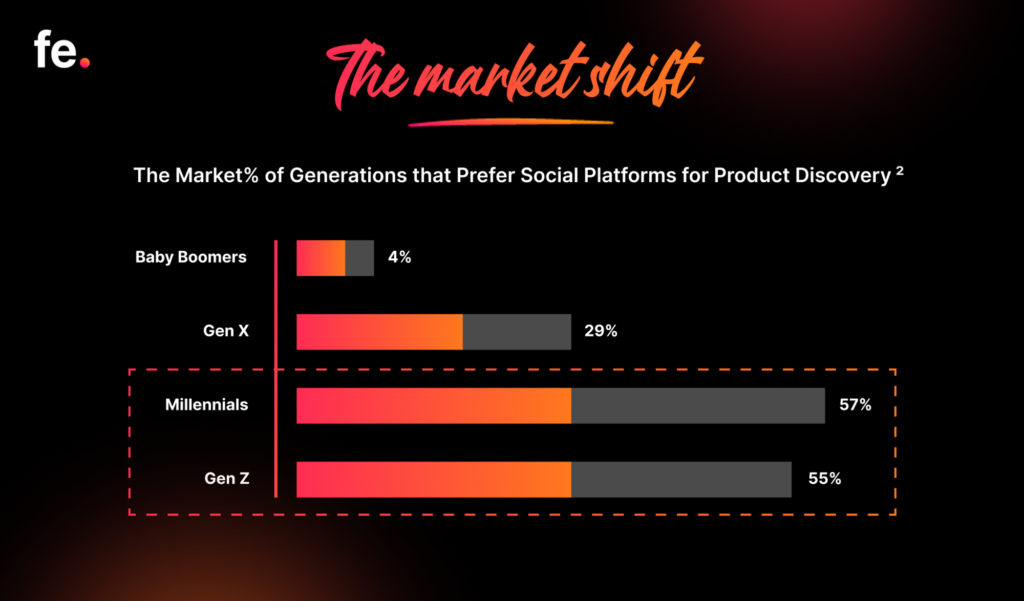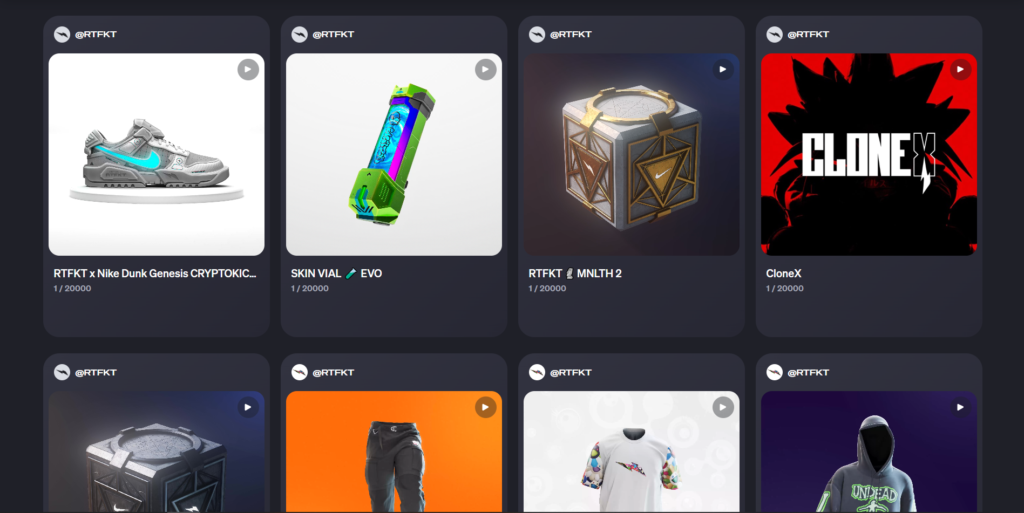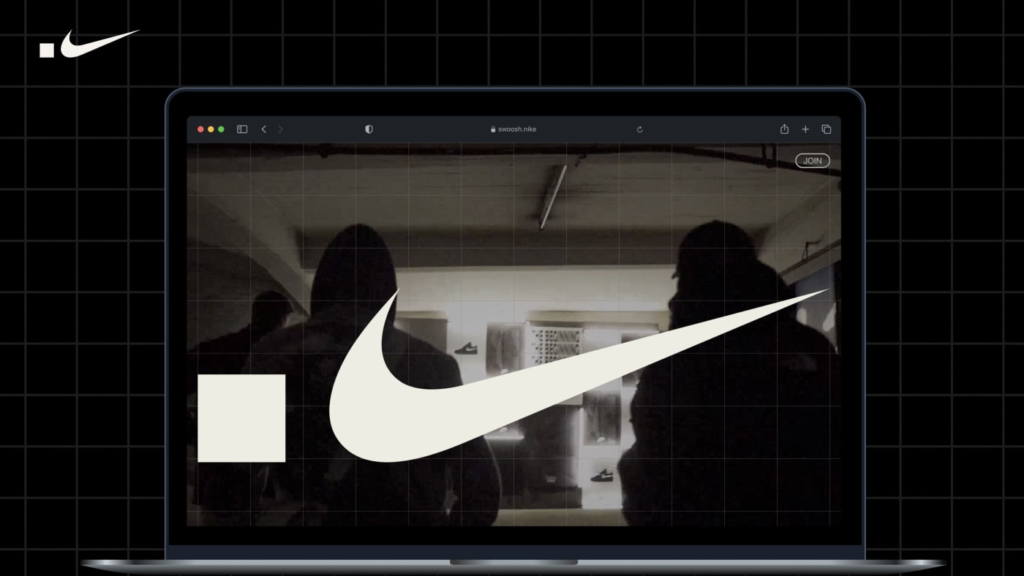Nike and its Web3 Partnerships

Nike, a pioneer in virtual spaces and goods, filed multiple trademark applications in 2021 to create and sell virtual branded sneakers and apparel. In January 2022, the company launched Nike Virtual Studios, focusing on blockchain, web3, and the metaverse. The sportswear giant has reaped substantial financial benefits from its web3 ventures, amassing over $185 million in revenue and royalties through digital collection (NFTs) sales.
But it’s more than a quick revenue hit for Nike, as president and chief executive John Donahoe describes via Vogue Business: “The way most companies look at consumers is ‘well, who’s got disposable income?’ We don’t look at it that way. We look at, who is setting the agenda? Who is the future?”
This mantra has driven its pursuit of digital innovation, leading Nike to strategic partnerships to integrate its existing community into novel digital spaces and attract new customers. The company is determined to make digital assets and economies a more prominent aspect of its evolving business model, solidifying its position at the forefront of the virtual goods market.
Additionally, Nike has a grasp of the value of personalization in today’s market, already having successful customization options with their traditional shoe lines. As per Forbes, specifically, they understand that younger millennials and Generation Z consumers place a high value on customized and unique items, rather than the standard mass-produced goods that flood the market.

Nike’s pivot is designed to capture the next three generations of consumers, Millennials, GenZ and soon to be consumers, Gen Alpha. Their partnerships are designed to appeal to these digital natives and to create product personalization and customization in the metaverse and beyond. Let’s look at some of their most successful partnerships so far:
RTFKT

RTFKT became one of the leaders in digital fashion when they kicked off the collaboration with young artist Fewocious, bringing in $3 million in roughly seven minutes from digital sneaker sales. They then moved to their cornerstone PFP collection, Clone X.
This focus on virtual sneakers and collectables impressed Nike, who, in December 2021, Nike acquired RTFKT, to capitalize on the growing digital asset market. Nike later introduced its web3 platform, dotSwoosh, where consumers can buy, design, and trade virtual assets. This platform also allows fans and creators to participate in design contests, sharing sales profits with Nike.
As a platform, RTFKT allows them to deliver on their digital innovation and customization strategies while targeting younger generations.
Roblox

Nike collaborated with gaming platform Roblox to create “Nikeland,” a virtual world offering Nike avatar outfits, which attracted over 21 million visitors during its first two-month run. Nikeland featured mini-games and digital experiences corresponding to real-life events, with Roblox as a testing ground for brand activations targeting younger audiences. Roblox has been enhancing its digital fashion capabilities, with over 62 million virtual fashion items and accessories created on the platform in 2022. So this partnership allows Nike more avenues to develop their new products and customizations.
Qartium
Nike partnered with Qartium, a decentralized commerce platform, in November 2022 to sell its digital collections through a direct transaction model, which reduces costs and enhances security. This collaboration with Qartium, a blockchain project capable of selling diverse items, allows Nike to explore new e-commerce options, with Amazon joining in a Qartium partnership alongside them.
Nike’s own: Dot Swoosh

Nike is also launching Dot Swoosh, a new web3 platform under Nike Virtual Studios, to expand its digital collections and virtual product offerings. The platform aims to target traditional brand fans and educate them on web3 technology. Users can buy, trade, and showcase virtual and “phygital” products, access events, and co-create products.
All of these partnerships are designed to target different market segments and expand Nike’s product offerings. The hybrid “phygital” products create fans and bridge their product offerings into virtual worlds (gaming/metaverse), while opening up new markets for their physical products. This targets the customers who Nike believe are setting the future agenda.
About Faculty Entertainment
At Faculty Entertainment, we lead the way in innovation, unlocking new value for brands and entertainers through our cutting-edge technology consulting firm and digital asset studio. With unparalleled industry expertise, dynamic partnerships, and an unwavering commitment to client success, we are revolutionizing customer and fan relationships. We work alongside notable brands such as Timbaland’s Beatclub, Steve Harvey’s Gamestar+, and Audi’s Holoride, leading the industry in solution design, infrastructure development, campaign planning and execution.



